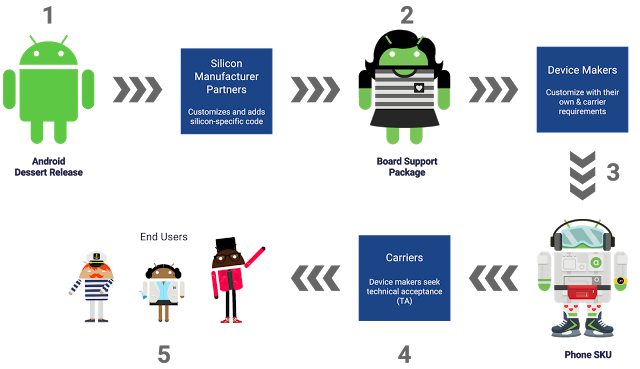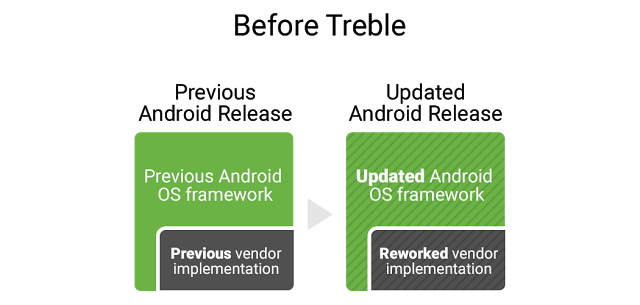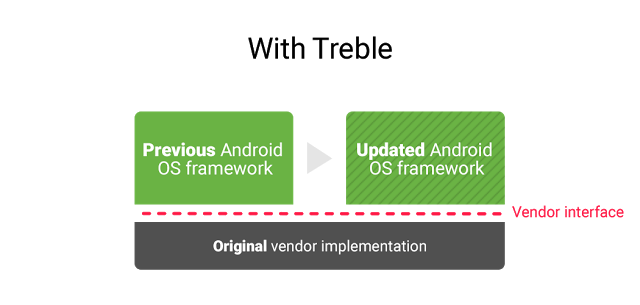If you’ve ever purchase a phone with Android X, you may have noticed it takes a long time to get an update to Android Y after Google officially release the latest version. The reason it takes so long, except on Google’s own hardware, is that the latest Android version needs to be update by the Silicon vendor, which then sends a BSP to manufacturers, who in turn brings their own tweaks, with in some cases telecom carriers involved in the last step, before delivering the update the end users.
 This is normally a time-consuming and costly process for all parties involved. One of the reasons is that while the higher level app API is fairly stable, the Android framework (middleware) interface to the Vendor’s implementation may change greatly between different major Android versions. Google is aiming to fix that with Project Treble, starting with Android O, by providing a stable vendor interface between versions.
This is normally a time-consuming and costly process for all parties involved. One of the reasons is that while the higher level app API is fairly stable, the Android framework (middleware) interface to the Vendor’s implementation may change greatly between different major Android versions. Google is aiming to fix that with Project Treble, starting with Android O, by providing a stable vendor interface between versions.
 That means we get from the point where the silicon vendor and manufacturers need to adapt their implementation of the interface to the Android OS framework for each release to becoming able to reuse the implementation with no or few modifications for each releases thanks to Treble.
That means we get from the point where the silicon vendor and manufacturers need to adapt their implementation of the interface to the Android OS framework for each release to becoming able to reuse the implementation with no or few modifications for each releases thanks to Treble.
 That could save months of work, and for smaller manufacturers could make the difference between providing an update to a new Android version, or providing none. Project Treble also involves a Vendor Test Suite (VTS), similar to the Compatibility Test Suite (CTS) for the app developer API, to ensure forward compatibility with the vendor implementation.
That could save months of work, and for smaller manufacturers could make the difference between providing an update to a new Android version, or providing none. Project Treble also involves a Vendor Test Suite (VTS), similar to the Compatibility Test Suite (CTS) for the app developer API, to ensure forward compatibility with the vendor implementation.
Since Treble has only started being implemented in Android O, end users will only be able to see the benefits with the update from Android O to Android P sometimes in 2018 or 2019 depending on the release schedule for their device.

Jean-Luc started CNX Software in 2010 as a part-time endeavor, before quitting his job as a software engineering manager, and starting to write daily news, and reviews full time later in 2011.
Support CNX Software! Donate via cryptocurrencies, become a Patron on Patreon, or purchase goods on Amazon or Aliexpress




